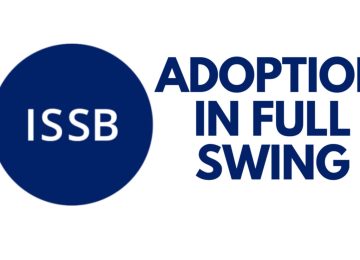An Accenture, Disability: IN, and AAPD study indicates that businesses leading in disability inclusion experience increased revenue, net income, and profit. Hiring people with disabilities has improved the business case over the past five years.
Key findings:
• Companies leading in disability inclusion have seen 1.6 times increased revenue, 2.6 times net income, 2 times economic profit, and a 25% higher chance of outperforming their industry peers.
• Since February 2020, the percentage of workers with disabilities has increased from 29 to 37% since 2018. This is largely due to remote work opportunities, digital accessibility, and AI-powered platforms, promoting disability inclusion.
• 76 percent of employees with disabilities do not fully disclose their disabilities at work, according to additional Accenture research.
• According to the 2023 DEI report, just 4.6% of workers self-identify as disabled when communicating with their employers.
• Voluntary statements regarding disability inclusion at work are noteworthy since the US Securities and Exchange Commission (SEC) started requiring companies to include a human capital overview in their filings.
• By adding ESG principles into their accountability frameworks and disclosing results to the public, organizations can make sure that disability inclusion is a key component of their overall sustainability and ethical business practices.
The study and frameworks:
The follow-up study, “The Disability Inclusion Imperative,” builds on the 2018 seminal report on disability inclusion at work in the US. It examines disability inclusion in the context of significant technological advancements, shifting geopolitical dynamics, and the effects of a pandemic across 346 US companies. These businesses took part in the Disability Equality Index (DEI), a well-known international benchmarking tool that rates companies according to how inclusive they are of people with disabilities.
Accenture and Disability: IN have developed a framework to assist business leaders in becoming more intentional about the issue. This includes:
Access: Organizations must remove barriers and provide equal access to employment opportunities for individuals with disabilities, including recruitment, hiring, and career advancement.
Awareness: Leaders must raise awareness about disabilities so organizations can foster a culture of empathy and respect, challenge stereotypes, and promote a more inclusive mindset among employees.
Advocacy: Organizations must create an environment for individuals to feel comfortable disclosing their disabilities and forming employee networks and help amplify their voices and ensure their perspectives are heard.
Action: By integrating various disability inclusion initiatives under a single umbrella, organizations can ensure that they work in harmony to create a more accessible and equitable workplace.
Accountability: Organizations must be able to measure their progress and share what they learn to demonstrate their commitment and dedication to improving disability inclusion.
Quotes:
“Disability inclusion is a topic close to my heart, and it is imperative, both from a business and societal aspect, to build an accessible, inclusive environment where all our people can belong and thrive,” said Jill Kramer, Chief Marketing and Communications officer, Accenture, and co-Chair, Cross-Industry Coalition of Chief Marketing Officers (CMOs) and Chief Communications Officers (CCOs) to advance accessibility in marketing powered by Disability: IN.
“For too long, people with disabilities – individuals who are perfectly qualified and overwhelmingly willing to work – face enormous barriers to being offered a job,” said Ted Kennedy, Jr., Disability Rights Attorney, former Connecticut State Senator and immediate past Chair, AAPD Board. “Accenture’s recent report provides compelling evidence that disability inclusion accelerates business performance, brand loyalty, and shareholder returns.”
“People with disabilities are a tremendous source of talent and innovation as well as market share. Last year, 485 companies leveraged the DEI to benchmark their inclusion efforts and build for sustainable, long-term performance,” said Jill Houghton, President and CEO, Disability: IN. “The business case is stronger than ever, with companies achieving 1.6 times more revenue, 2.6 times more net income, and 2 times more economic profit. We encourage companies to measure their progress and use the data to identify tangible ways to advance disability inclusion across their enterprise.”












